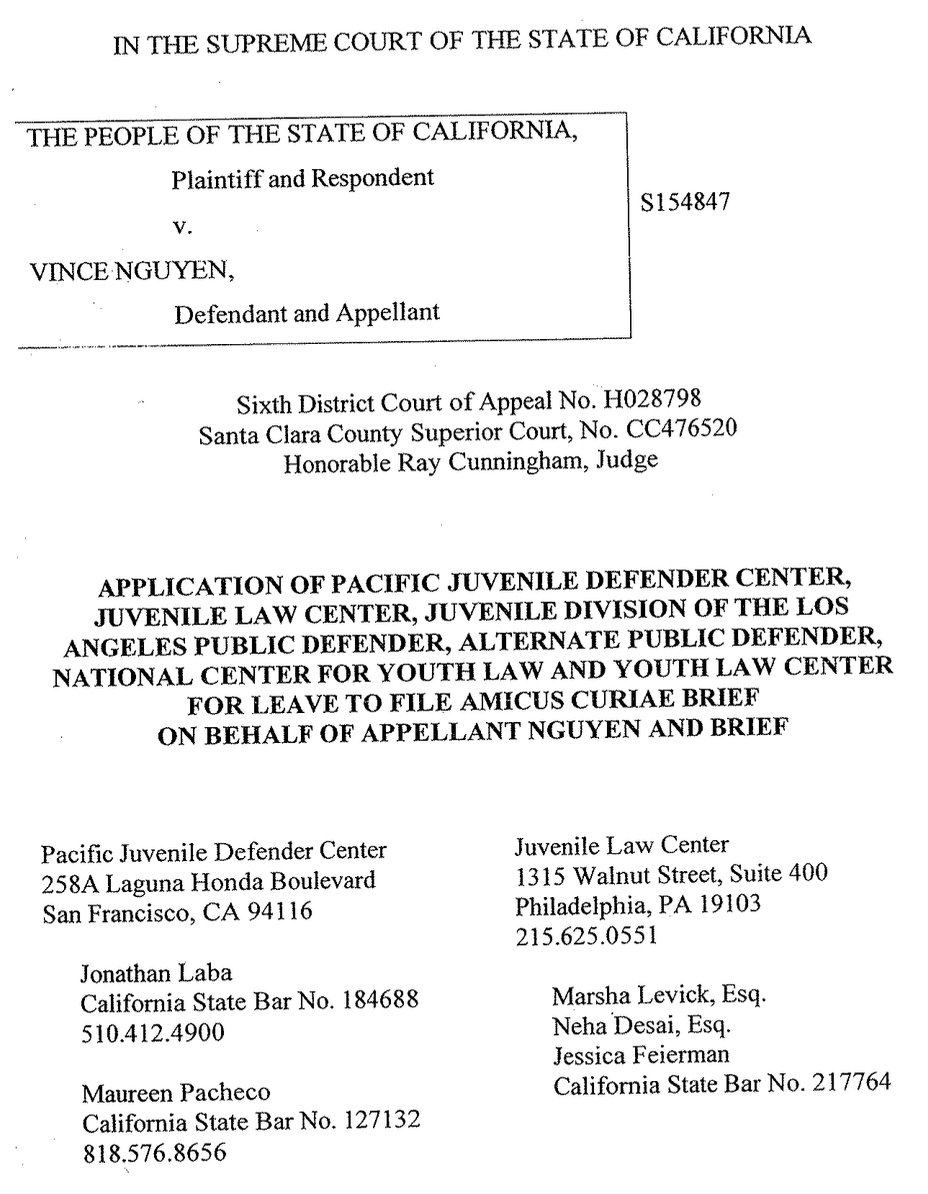
Summary of Argument
Many who labor on behalf of delinquent children in California justifiably take pride in our state's system of juvenile justice. It is a system which can produce positive, sustained, and life-changing benefits for the children who are subject to its care. California's provision of "care, treatment and guidance" that is consistent with the child's and the public's best interests can heal families who benefit from the positive development and reform of their children. Cal. Welf. & Inst. Code § 202(a) (West, Westlaw through Ch. 8 of 2008 Reg. Sess. and Ch. 6 of 2007-2008 Third Ex. Sess., and Props. 98 and 99). It can improve communities who profit from the transformation of delinquent children into productive and law-abiding citizens. As child advocates, Amici Pacific Juvenile Defender Center et al. recognize and support the rehabilitative ideals which have been an integral part of California's juvenile justice system for over a century. And while the system has transformed in recent decades to one that more closely resembles the adult criminal justice system, the ideals of education and reformation of the child remain at the juvenile system's core.
These benefits are not available to the many youth who are directly charged in or transferred to California's criminal courts. California has a comprehensive set of laws that provide for the arrest, prosecution and sentencing of certain juveniles as adults. These laws reflect California's decision to withhold from certain juveniles the benefits of the juvenile court's focus on rehabilitation. Yet equally important is that these laws provide for the retention of those benefits for a substantial class of juvenile offenders who commit delinquent acts and remain in the juvenile delinquency system. It is the rights of this latter class of offenders, who remain in juvenile court and who therefore lack the right to a jury trial, that are at stake in this appeal.
Those juveniles who remain in juvenile court are there for a reason. Following the passage of Proposition 21, the Gang Violence and Juvenile Crime Prevention Act of 1998, prosecutors have the discretion to directly charge as an adult any youth age 16 or older who commits an offense listed in section 707(b) of the Welfare and Institutions Code. Cal. Welf. & Inst. Code § 707(d) (1); Manduley v. Superior Court, 27 Cal. 4th 537, 549-50 (2002). For a juvenile adjudication to qualify as a "strike" under California's Three Strikes Law, one statutory prerequisite is that the youth must have been adjudicated a ward of the court while age 16 or older for an offense specified in section 707(b). Cal. Penal Code § 667 (d)(3)(D) (West, Westlaw through Ch. 8 of 2008 Reg. Sess. and Ch. 6 of 2007-2008 Third Ex. Sess., and Props. 98 and 99); People v. Garcia, 21 Cal. 4th 1, 4-5 (1999). In short, any youth prosecuted in juvenile court for an offense that would qualify as a "strike" is in juvenile court because the prosecution consented to that choice of forum. Amici expect that the prosecutor will make that choice following careful reflection about the circumstances of the offense, the nature of the offender, and the propriety of juvenile court treatment.
Thus, the youthful offenders eligible for prosecution in criminal court who remain in juvenile court are there because the prosecution, the court, or both have concluded that the youth is fit for juvenile court treatment--a less serious offender than a juvenile counterpart prosecuted as an adult. Yet this beneficence comes with an extraordinary cost: the loss of the right to a jury trial. That cost is magnified to an unconstitutional degree when those juvenile adjudications qualify as "strikes" under the Three Strikes Law.
The state cannot have it both ways: either there is a distinction between the juvenile and adult systems that justifies deprivation of a jury trial, or there is not a distinction, and the state must afford that right. See McKeiver v. Pennsylvania, 403 U.S. 528, 545-47 (1971) jury trial not constitutionally required for adjudicatory hearing; among other reasons, it would tend "to place the juvenile squarely in the routine of the criminal process.") Given the clear legislative choice to treat particular classes of juvenile offenders as adults and others as juveniles, equating a prior juvenile delinquency adjudication with a prior adult conviction for the purposes of the Three Strikes Law reduces California's transfer scheme to a mere formality, and makes a mockery of the historic trade-off between a more informal, treatment-centered juvenile court and the overtly punitive adult criminal justice system that is strictly bound by all federal constitutional mandates for due process.